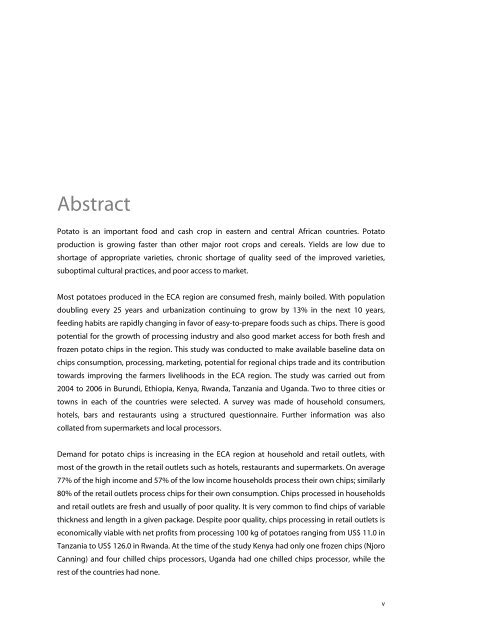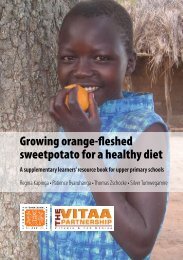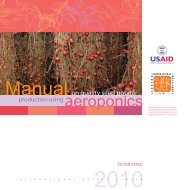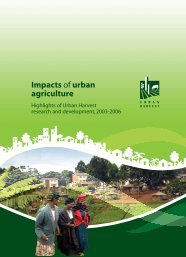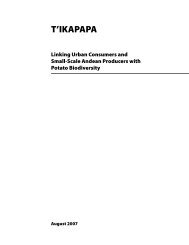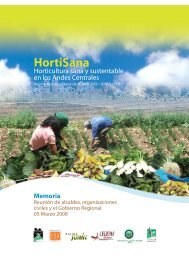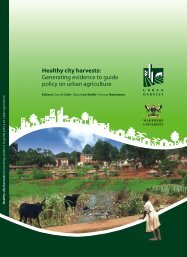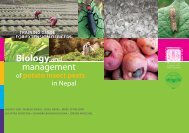Download pdf - International Potato Center
Download pdf - International Potato Center
Download pdf - International Potato Center
You also want an ePaper? Increase the reach of your titles
YUMPU automatically turns print PDFs into web optimized ePapers that Google loves.
Abstract<br />
<strong>Potato</strong> is an important food and cash crop in eastern and central African countries. <strong>Potato</strong><br />
production is growing faster than other major root crops and cereals. Yields are low due to<br />
shortage of appropriate varieties, chronic shortage of quality seed of the improved varieties,<br />
suboptimal cultural practices, and poor access to market.<br />
Most potatoes produced in the ECA region are consumed fresh, mainly boiled. With population<br />
doubling every 25 years and urbanization continuing to grow by 13% in the next 10 years,<br />
feeding habits are rapidly changing in favor of easy-to-prepare foods such as chips. There is good<br />
potential for the growth of processing industry and also good market access for both fresh and<br />
frozen potato chips in the region. This study was conducted to make available baseline data on<br />
chips consumption, processing, marketing, potential for regional chips trade and its contribution<br />
towards improving the farmers livelihoods in the ECA region. The study was carried out from<br />
2004 to 2006 in Burundi, Ethiopia, Kenya, Rwanda, Tanzania and Uganda. Two to three cities or<br />
towns in each of the countries were selected. A survey was made of household consumers,<br />
hotels, bars and restaurants using a structured questionnaire. Further information was also<br />
collated from supermarkets and local processors.<br />
Demand for potato chips is increasing in the ECA region at household and retail outlets, with<br />
most of the growth in the retail outlets such as hotels, restaurants and supermarkets. On average<br />
77% of the high income and 57% of the low income households process their own chips; similarly<br />
80% of the retail outlets process chips for their own consumption. Chips processed in households<br />
and retail outlets are fresh and usually of poor quality. It is very common to find chips of variable<br />
thickness and length in a given package. Despite poor quality, chips processing in retail outlets is<br />
economically viable with net profits from processing 100 kg of potatoes ranging from US$ 11.0 in<br />
Tanzania to US$ 126.0 in Rwanda. At the time of the study Kenya had only one frozen chips (Njoro<br />
Canning) and four chilled chips processors, Uganda had one chilled chips processor, while the<br />
rest of the countries had none.<br />
v


